How To Get Slim Fast And Easily – 30 Proven Ways
There are numerous ways to lose the pounds and become a fitter and healthier version of yourself.

Image: Midjourney/ StyleCraze Design Team
Getting a slim body is not an easy feat. It is a challenge that needs dedication and staying on track. If you are wondering how to get a slim body, counting calories and being on fad diets may not be the most effective methods. Let us explain.
Counting calories may not always help with successful weight loss. This method only provides short-term results (1), (2). But fret not – here’s a curated list of the 30 ways you can shed fat fast and get a toned body easily. Give yourself 2-3 weeks, and you will be amazed at how slim your body looks and how great you feel. Continue reading and get your answer on how to become slim.
In This Article
30 Proven Ways To Get A Slim Body
When it comes to weight loss, most people want it done quickly. It should come as no surprise that one of the most googled queries is ‘how to lose weight in a week or less’. However, good things take time and it’s the same with weight loss. Here are some things you can try that many people swear by.
1. Drink Green Tea

Green tea is loaded with antioxidants called catechins (EGCG, EGC, and ECG) (3). Catechins detox the body by scavenging the harmful free oxygen radicals and reducing inflammation.
Green tea catechins have also shown promising results in reducing the risk of cardiovascular disease and cancer (4). Drink two cups of green tea per day to flush out toxins, speed up weight loss, and improve your health.
2. Add Protein To Meals
Adding protein to each meal helps improve lean muscle mass
(5). The muscles, which are made of protein, contract and relax to allow movements to occur. Since the muscles work constantly, they contain more mitochondria (the organelles that convert sugar to energy) (6).
Research shows consuming a high-protein diet aids more weight loss compared to a standard protein diet (7). Here’s a list of proteins sources:
Protein Sources – Eggs, skinless chicken breast, mushroom, ground turkey, fish, tofu, lentils, beans, soy, nuts, seeds, and milk.
3. Consume Fruits And Veggies
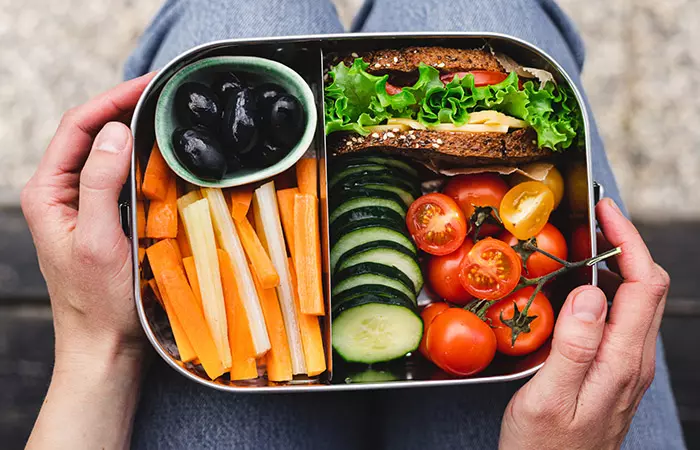
Increased consumption of fruits and vegetables can help you lose weight fast (8). They are rich in dietary fiber, vitamins, and minerals. Fruits and veggies are low in calories, and they increase satietyi A state of being full and an inability to consume any more food after having eaten to one's maximum capacity. , reduce hunger, and lower BMI (9).
Eva De Angelis, Dietitian Nutritionist, says, “While bananas, like most fruits, are high in carbs, they are also high in fiber, minerals, and antioxidants, all of which are essential for good health. A medium banana also has only 105 calories but provides plenty of satiety, making it an ideal weight-loss snack. Even so, I suggest choosing green bananas over fully ripe bananas for better weight loss results. While both have the same net carb content, the green ones are higher in resistant starch, which acts as fiber, slowing sugar absorption, and increasing satiety.”
She adds, “It may also increase fat burning, which is ideal for weight loss. Yet, as bananas ripen, the starch is converted into glucose, resulting in higher sugar content in ripe bananas.”
4. Try Intermittent Fasting
Intermittent fasting is a popular strategy to lose weight quickly
(10). You can eat anything you want in a window of time and then fast for the rest of the day. Fasting intermittently also helps lower LDL cholesterol and triglyceride levels (11).
You may try the 16/8 intermittent fasting or try other types of intermittent fasting according to your convenience.
Sandhya, a blogger, shared her journey of slimming down by incorporating a diet rich in healthy proteins, exercising five days a week, and experimenting with intermittent fasting. She said, “I worked out in a fasted state and ate in the window of 12pm — 8pm. I drank 3 liters of water everyday. It made me feel like an absolute beast and led to a wee bit of body fat loss.At the end of it, I was leaner than ever, had more definition but was not exactly shredded (i).”
 Quick Tip
Quick Tip5. Avoid Added Sugar
Avoid refined sugar to lose weight quickly. Avoid foods that contain added sugar, like soda, diet soda, cakes, pastries, cupcakes, milk chocolate, white chocolate, candies, waffles, pancakes, peanut butter cups, bagel, marshmallows, candied apple, and foods containing fructosei Also referred to as fruit sugar, a naturally occurring sugar present in many plants that is frequently linked to glucose. , sucrosei A sweetening compound derived from the subunits of glucose and fructose found in many plants, including sugar cane or beet. , and HFCSi A sweetener obtained from corn starch that is also referred to as high-fructose corn syrup or glucose-fructose syrup. .
Sugar also tends to increase inflammation in the body (12). This, in turn, leads to inflammation-induced weight gain.
6. Avoid Processed Foods
Processed foods, like salami, ham, frozen foods, ready-to-eat, canned foods, and packaged fruit and vegetable juices, contain high amounts of salt, sugar, preservatives, and artificial coloring agents.
Avoid junk foods like potato chips, burgers, pizza, fried chicken, and fries. These contain high calories, sugar, salt, and trans fats, which lead to quick weight gain (13). Avoiding these foods will help you shed fat fast and prevent you from regaining the weight.
 Quick Tip
Quick Tip7. Drink Water
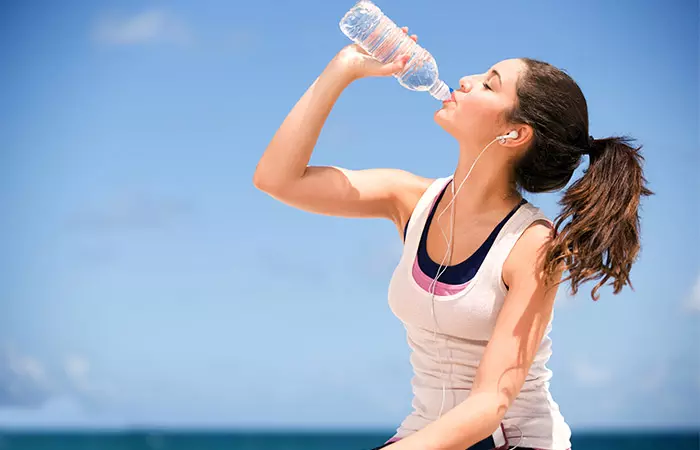
Staying hydrated is key to staying ahead in the weight loss game. A lot of times, we mistake thirst for hunger. Drinking water when you feel hungry at odd times will reduce your food intake and increase lipolysis (fat breakdown) (14).
A study found that drinking 500 mL water before meals led to greater weight loss in middle-aged women (15). Drink 2-4 liters of water per day, depending on your activity level and the climate you live in.
8. Consume Healthy Fats
Healthy fats are foods containing omega-3 polyunsaturated fatty acids. Consume nuts, salmon, tuna, mackerel, sardines, or carp, olive oil, sunflower seeds, and melon seeds.
Omega-3s help balance the omega-3 and omega-6 ratio in the body, thereby reducing inflammation and weight gain (16). Omega-3s also help prevent muscle loss and insulin resistancei A condition where the body’s muscles, and fat and liver cells do not respond adequately to insulin and cannot absorb glucose from the blood. (17).
9. Cook Your Meals
Cooking your meals at home will help prevent you from consuming too many calories. Restaurant foods often contain hidden calories in the form of sauces, dips, salad dressings, and taste enhancers. Consuming these every day can be harmful.
Jesse Feder, Clinical Dietitian at the Memorial Regional Hospital, discusses the relationship between rice consumption and the risk of gaining unwanted weight. He says, “Rice alone will not make your belly fat. However, if you overconsume rice every day, you are more likely to gain belly fat. This is simply because rice is a calorically dense food. People tend to have multiple servings of rice at a time throughout the day. This can add up calories quite quickly, leading to an increase in belly fat. If eaten in moderation, rice can be part of a healthy diet that does not lead to belly fat.”
Eva adds, “White rice may be less filling than brown or parboiled rice, and overeating white rice may result in weight gain and belly fat. Yet, white rice is high in manganese, iron, and some B vitamins. While I try to include brown rice more often, I also enjoy white rice, especially jasmine rice with curry. So, when I eat white rice, I always try to have plenty of vegetables on my plate or some seeds for fiber. This way, I can enjoy the texture and flavor of white rice while also getting fiber from other foods. This keeps me satisfied and helps me better control my body weight. ”
Make yourself a delicious salad with olive oil dressing or prepare soup for a quick meal. You may also grill chicken/fish/tofu/mushrooms with veggies, or make daal soup with veggies. You will also be able to monitor the amount and quality of oil, amount of salt, and use veggies of your choice.
10. Practice Portion Control
Controlling the portion size reduces calorie intake (18). This, in turn, is a great way to lose weight. The rule of thumb is – half of your plate should contain veggies, one-fourth of the plate should contain a source of lean protein, and the remaining one-fourth of the plate should contain whole grains. Also, eat in a smaller plate.
11. Pay Attention To Your Food
Pay attention to what and how much you are eating. It will give your brain a cue about the amount of food you have consumed. You will not feel hungry right after eating. Turn off the TV, laptop, and mobile for a while and enjoy your food.
12. Eat Slowly
Do not rush when you eat. Eat slowly, chew the food, and taste the flavors. Eating slowly and chewing well prevents overeating and increases satiety (19). A study showed that slow eating also helped people with type 2 diabetes reduce weight (20).
13. Drink Black Coffee
Black coffee contains caffeine. Studies have found that the caffeine in black coffee might help reduce BMI and promotes fat loss (21). A research study showed that 4 mg/kg and 8 mg/kg caffeine increased metabolic rate in people with obesity (22).
Another study on lab animals showed better glucose tolerance and prevented weight gain (23).
Consume two cups of black coffee per day to burn fat. Avoid it if you are caffeine sensitive.
14. Avoid Alcohol
Frequent and excessive alcohol consumption causes weight gain (24). It is best to avoid consuming alcohol for at least two weeks to shed the fat fast. You may consume a glass of wine at the end of Week 2 to celebrate your new lifestyle.
15. Consume Probiotics
Probiotics are good gut bacteria that help in digestion and reduce the risk of obesity and metabolic defects (25). Consume plain yogurt, probiotic drinks, kimchi, and sauerkraut to increase the number and variety of good gut bacteria.
16. Consume Healthy Snacks
Feeling hungry between meals is normal. You must be careful with the snacks you choose to consume to lose weight fast. Consume healthy snacks, like carrot, cucumber, baked chips, hummus, fruits, coconut water, buttermilk, and freshly pressed fruit juice. Avoid unhealthy snacks at all costs.
Feder says, “Bread can be good or bad for losing weight, depending on the type of bread you eat. If you eat processed white bread, and a lot of it, you are more likely to gain weight over time. This is because white bread does not contain any fiber or nutrients that can help you feel full. Additionally, this will spike your blood sugar and then make you hungry quite quickly once digested. ”
Eva adds, “Bread can be an ally in weight loss if we choose wisely. I always go for whole-grain bread because it is high in fiber. And to lose weight, fiber is the name of the game. Among many benefits, fiber increases satiety, so we don’t feel hungry immediately after eating. And it also reduces the number of calories we can absorb from food. It’s a win-win situation!”
17. Consume Dinner Early
Have your dinner by 7 PM. You will get 2-3 hours to digest the food before you hit the bed. Eating late and sleeping right after prevents proper digestion. Also, if you choose to consume carbs, have your dinner before 7 PM.
18. Take A Walk After Dinner
Take a stroll after dinner. It will help digest the food and use up some calories as you walk. You can do it with your friends, spouse, colleagues, alone, or with your dog. Walking will also relax your mind.
19. Avoid Late-Night Snacking
If you want to know how to lose weight fast at home, it starts with changing your late night snacking habit. Do not stay awake more than 2-3 hours after your dinner. You will feel hungry and might end up snacking, which will prevent you from losing the extra inches. Brush your teeth and read a book or listen to soothing music to help you fall asleep on time.
20. Run!
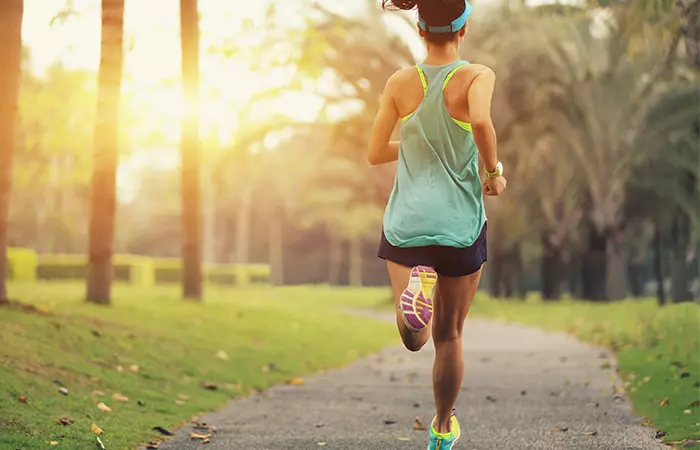
Running is a great cardio and helps you shed fat from the whole body. It also helps improve stamina and lung capacity. You must run if you want to get slim. All you need are running shoes, workout clothes, and a treadmill or a running track near you. You must also be careful about your running posture. If you are not too sure about how to start running, here’s a detailed post.
21. Try Other Aerobics
Apart from running, you must also try other aerobics. Aerobic exercises use oxygen while using glucose, glycogen, or protein as fuel. You may go for Zumba fitness workout and step aerobics, or indulge in other cardio exercises like a swim, a spin class or kickboxing, walk, or even yoga for weight loss. There are many exercises for reducing belly fat that are proven to be effective.
22. Do HIIT
High-intensity interval training (HIIT) is an anaerobic exercise that does not use oxygen. HIIT burns fat rather than glucose or glycogen and is thus considered one of the best bodyweight exercises.
Bouts of high-intensity exercises with equally spaced rest phases help burn more calories than moderate-intensity exercises. Studies found that HIIT reduced 28.5% fat compared to moderate-intensity exercises and increased glucose tolerance (26), (27).
It also involves effective core exercises that tone and strengthen abdominal muscles. Do HIIT at least twice a week for 30-45 minutes, and you will shed fat and get a chiseled body.
23. Do Strength Training
Strength training is all about strengthening and toning your muscles. You may lift weights, do bodyweight workouts and isometric exercises, and use resistance bands and TRX bands.
However, do not only restrict yourself to strength training. Similar to strength training, you can also incorporate resistance training into your workout routine. To lose weight, you must do 4-5 hours of cardio in the first 3-4 weeks and then start 2-3 hours of strength training per week.
24. Play A Sport
Play an outdoor sport. You will burn calories, sweat, improve lung capacity, balance, mobility, brain and muscle coordination, get shots of “feel good” hormones, be more energetic, and make great friends!
25. Enjoy A Cheat Meal
If you adhere to a healthy lifestyle for a week, you will earn one cheat meal. Cheat meals act as “caloric shock” and prevent the body from adapting to a new diet and reaching a weight loss plateau.
On a cheat meal day, you will consume an extra 500 calories in one of the meals. But not exceed the 500-calorie limit. You may consume any food of your choice, and, in addition to a low-fat diet, also stick to a low-carb diet or a Mediterranean diet to maintain the weight loss.
You can also check out our highly recommended Fast Metabolism Diet to kickstart your metabolism.
26. Take The Stairs
If you want to know how to get skinny fast, the secret is to take the stairs! Just change a few habits that you don’t even realize you have and it works wonders for your health. Start taking the stairs and burn a few extra calories. You will be happy and thankful for choosing stairs over the elevator.
Note: Avoid the stairs if you have a knee injury or are recovering from surgery.
27. Get Proper Sleep

Research shows that sleep deprivation also causes weight gain (28). Get at least 7 hours of sleep every day. Sleep helps to rejuvenate your mind and repair the muscles in the body. If you do not get a good night’s sleep, your brain will be stressed out and cannot function properly. When that happens, you will be more prone to eating unhealthy and gaining weight.
Go to sleep within 2-3 hours of having dinner. Push away all the worries by reading a book or listening to music. Get up early so that you have time to work out and prepare a good breakfast.
28. De-stress Regularly
Take out at least 30-45 minutes every day for yourself. Uses that time to de-stress and unwind. Do the things that you like to do – draw, paint, read, write, listen to a podcast or your favorite music, or just stargaze! Try not to get bothered about work, school, or anything else. Practice deep breathing.
29. Seek Help
We often tend to not discuss our problems and avoid being open. This not only causes you to gain weight due to the mounting stress but also puts your health at risk. Talk to your bestie or anyone you consider close. You can also seek professional help if something is bothering you too much and is hampering your day-to-day life.
30. Take A Break
Take a break from your routine. Go on trips, learn a few new skills, or watch movies to break the monotony. A change of place and activity will release the “feel good” hormones that fill us with a sense of satisfaction. This will make us stop depending on comfort food to feel better.
Key Takeaways
- Include more vegetables, fruits, probiotics, and protein-rich foods to fasten your weight loss.
- Sleep at least 7 hours a night to be active throughout the next day.
- Processed foods and sugary items can prevent you from losing weight, so best avoid them.
- Staying hydrated will help you reduce food intake, thereby helping in weight loss.
Infographic: 15 Key Things To Do For Quick Weight Loss
The battle with body weight is a never ending one for some people. Besides the fact that loving your body is the number one step towards achieving one’s fitness and health goals, there are a number of things that are absolutely key for losing or maintaining body weight.
Check out the infographic for the 15 most important things you should be doing without any compromise if you want to achieve your weight loss goals. Illustration: StyleCraze Design Team
If you are looking to achieve a slim body shape quickly, combining a balanced diet (or a calorie deficit) with regular physical activity is the way to go. As far as diet is concerned, consume less sugar, practice portion control, eat slowly, take more protein and healthy fats, drink green tea or black coffee, hydrate yourself properly, and avoid alcohol. Also, sweat it out every day by taking to post-dinner walks, running, high-intensity intermittent training, strength training and practicing various fat burning exercises like bootcamp workouts or barre workouts. Besides weight loss, the tips listed above may also help lower the risk of PCOD, metabolic syndrome, cardiovascular disease, diabetes, and other chronic diseases. Hence, start including them in your diet and fitness regimens immediately.
Frequently Asked Questions
What is the best diet for sustainable weight loss?
A balanced diet rich in whole foods is key for sustainable weight loss. Focus on including fruits, vegetables, lean proteins, whole grains, and healthy fats in your diet. Avoid processed foods, sugary drinks, and excessive amounts of refined carbohydrates. You may also try restricting your calorie intake, but only as suggested by a dietitian or nutritionist.
How much exercise should I do weekly to maintain a slim body?
Aim for at least 150 minutes of moderate-intensity exercise or 75 minutes of vigorous-intensity exercise each week. Incorporate both cardio and strength training to burn calories and build muscle.
What should I drink before bed to lose weight?
You may drink milk, grape juice, chamomile tea, cinnamon tea, green tea, or fenugreek water. Some of these induce better sleep, while others improve metabolism or digestion.
Does drinking hot water reduce belly fat?
There is no evidence to suggest that drinking hot water reduces belly fat. However, drinking sufficient water, regardless of its temperature, is essential for weight management.
Is being hungry good for weight loss?
Staying hungry for long periods may send your body into starvation mode and lead to reduced metabolism. Low metabolism is not good for weight loss.
Can I skip breakfast to lose weight?
You may skip breakfast to lose weight. However, be mindful not to overindulge during the meals that follow.
Get fitter with a targeted exercise routine shown in the video below. The video guides you through effective workouts to shed fat and sculpt your desired physique. Let’s get started!
Personal Experience: Source
StyleCraze's articles are interwoven with authentic personal narratives that provide depth and resonance to our content. Below are the sources of the personal accounts referenced in this article.
i. My Fitness Journey — Part Onehttps://medium.com/sandymonium-productions/my-fitness-journey-part-one-a151b8d93517
References
Articles on StyleCraze are backed by verified information from peer-reviewed and academic research papers, reputed organizations, research institutions, and medical associations to ensure accuracy and relevance. Read our editorial policy to learn more.
- Benton, David, and Hayley A Young. “Reducing Calorie Intake May Not Help You Lose Body Weight.” Perspectives on psychological science : a journal of the Association for Psychological Science vol. 12,5 (2017): 703-714.
https://www.ncbi.nlm.nih.gov/pmc/articles/PMC5639963/ - Roberts, D C. “Quick weight loss: sorting fad from fact.” The Medical journal of Australia vol. 175,11-12 (2001): 637-40.
https://pubmed.ncbi.nlm.nih.gov/11837873/ - Forester, Sarah C, and Joshua D Lambert. “The role of antioxidant versus pro-oxidant effects of green tea polyphenols in cancer prevention.” Molecular nutrition & food research vol. 55,6 (2011): 844-54.
https://www.ncbi.nlm.nih.gov/pmc/articles/PMC3679539/ - Nugala, Babitha et al. “Role of green tea as an antioxidant in periodontal disease: The Asian paradox.” Journal of Indian Society of Periodontology vol. 16,3 (2012): 313-6.
https://www.ncbi.nlm.nih.gov/pmc/articles/PMC3498696/ - Carbone, John W, and Stefan M Pasiakos. “Dietary Protein and Muscle Mass: Translating Science to Application and Health Benefit.” Nutrients vol. 11,5 1136.
https://www.ncbi.nlm.nih.gov/pmc/articles/PMC6566799/ - McPherron, Alexandra C et al. “Increasing muscle mass to improve metabolism.” Adipocyte vol. 2,2 (2013): 92-8.
https://www.ncbi.nlm.nih.gov/pmc/articles/PMC3661116/ - Campos-Nonato, Ismael et al. “Effect of a High-Protein Diet versus Standard-Protein Diet on Weight Loss and Biomarkers of Metabolic Syndrome: A Randomized Clinical Trial.” Obesity facts vol. 10,3 (2017): 238-251.
https://www.ncbi.nlm.nih.gov/pmc/articles/PMC5644969/ - Whigham, L D et al. “Increased vegetable and fruit consumption during weight loss effort correlates with increased weight and fat loss.” Nutrition & diabetes vol. 2,10 e48.
https://www.ncbi.nlm.nih.gov/pmc/articles/PMC3488810/ - Schroder, Kerstin E E. “Effects of fruit consumption on body mass index and weight loss in a sample of overweight and obese dieters enrolled in a weight-loss intervention trial.” Nutrition (Burbank, Los Angeles County, Calif.) vol. 26,7-8 (2010): 727-34.
https://pubmed.ncbi.nlm.nih.gov/20022464/ - Rynders, Corey A et al. “Effectiveness of Intermittent Fasting and Time-Restricted Feeding Compared to Continuous Energy Restriction for Weight Loss.” Nutrients vol. 11,10 2442.
https://www.ncbi.nlm.nih.gov/pmc/articles/PMC6836017/ - Santos, Heitor O, and Rodrigo C O Macedo. “Impact of intermittent fasting on the lipid profile: Assessment associated with diet and weight loss.” Clinical nutrition ESPEN vol. 24 (2018): 14-21.
https://pubmed.ncbi.nlm.nih.gov/29576352/ - Della Corte, Karen W et al. “Effect of Dietary Sugar Intake on Biomarkers of Subclinical Inflammation: A Systematic Review and Meta-Analysis of Intervention Studies.” Nutrients vol. 10,5 606.
https://www.ncbi.nlm.nih.gov/pmc/articles/PMC5986486/ - Fuhrman, Joel. “The Hidden Dangers of Fast and Processed Food.” American journal of lifestyle medicine vol. 12,5 375-381.
https://www.ncbi.nlm.nih.gov/pmc/articles/PMC6146358/ - Thornton, Simon N. “Increased Hydration Can Be Associated with Weight Loss.” Frontiers in nutrition vol. 3 18.
https://www.ncbi.nlm.nih.gov/pmc/articles/PMC4901052/ - Dennis, Elizabeth A et al. “Water consumption increases weight loss during a hypocaloric diet intervention in middle-aged and older adults.” Obesity (Silver Spring, Md.).
https://www.ncbi.nlm.nih.gov/pmc/articles/PMC2859815/ - Simopoulos, A P. “The importance of the ratio of omega-6/omega-3 essential fatty acids.” Biomedicine & pharmacotherapy = Biomedecine & pharmacotherapie vol. 56,8 (2002): 365-79.
https://pubmed.ncbi.nlm.nih.gov/12442909/ - Buoite Stella, Alex et al. “Update on the Impact of Omega 3 Fatty Acids on Inflammation, Insulin Resistance and Sarcopenia: A Review.” International journal of molecular sciences vol. 19,1 218.
https://www.ncbi.nlm.nih.gov/pmc/articles/PMC5796167/ - Steenhuis, Ingrid, and Maartje Poelman. “Portion Size: Latest Developments and Interventions.” Current obesity reports vol. 6,1 (2017): 10-17.
https://www.ncbi.nlm.nih.gov/pmc/articles/PMC5359369/ - Shah, Meena et al. “Slower eating speed lowers energy intake in normal-weight but not overweight/obese subjects.” Journal of the Academy of Nutrition and Dietetics vol. 114,3 (2014): 393-402.
https://pubmed.ncbi.nlm.nih.gov/24388483/ - Angelopoulos, Theodoros et al. “The effect of slow spaced eating on hunger and satiety in overweight and obese patients with type 2 diabetes mellitus.” BMJ open diabetes research & care vol. 2,1 e000013. 2 Jul.
https://www.ncbi.nlm.nih.gov/pmc/articles/PMC4212566/ - Tabrizi, Reza et al. “The effects of caffeine intake on weight loss: a systematic review and dos-response meta-analysis of randomized controlled trials.” Critical reviews in food science and nutrition vol. 59,16 (2019): 2688-2696.
https://pubmed.ncbi.nlm.nih.gov/30335479/ - Acheson, K J et al. “Caffeine and coffee: their influence on metabolic rate and substrate utilization in normal weight and obese individuals.” The American journal of clinical nutrition vol. 33,5 (1980): 989-97.
https://pubmed.ncbi.nlm.nih.gov/7369170/ - Rustenbeck, I et al. “Effect of chronic coffee consumption on weight gain and glycaemia in a mouse model of obesity and type 2 diabetes.” Nutrition & diabetes vol. 4,6 e123. 30 Jun.
https://www.ncbi.nlm.nih.gov/pmc/articles/PMC4079928/ - Traversy, Gregory, and Jean-Philippe Chaput. “Alcohol Consumption and Obesity: An Update.” Current obesity reports vol. 4,1 (2015): 122-30.
https://www.ncbi.nlm.nih.gov/pmc/articles/PMC4338356/ - Mazloom, Kiran et al. “Probiotics: How Effective Are They in the Fight against Obesity?.” Nutrients vol. 11,2 258.
https://www.ncbi.nlm.nih.gov/pmc/articles/PMC6412733/ - Is Interval Training the Magic Bullet for Fat Loss? A Systematic Review and Meta-Analysis Comparing Moderate-Intensity Continuous Training With High-Intensity Interval Training (HIIT), Br J Sports Med, 53 (10), 655-664.
https://pubmed.ncbi.nlm.nih.gov/30765340/ - Boutcher, Stephen H. “High-intensity intermittent exercise and fat loss.” Journal of obesity vol. 2011 (2011): 868305.
https://www.ncbi.nlm.nih.gov/pmc/articles/PMC2991639/ - Patel, Sanjay R et al. “Association between reduced sleep and weight gain in women.” American journal of epidemiology vol. 164,10 (2006): 947-54.
https://www.ncbi.nlm.nih.gov/pmc/articles/PMC3496783/ - Benton, David, and Hayley A Young. “Reducing Calorie Intake May Not Help You Lose Body Weight.” Perspectives on psychological science : a journal of the Association for Psychological Science vol. 12,5 (2017): 703-714.
https://www.ncbi.nlm.nih.gov/pmc/articles/PMC5639963/ - Roberts, D C. “Quick weight loss: sorting fad from fact.” The Medical journal of Australia vol. 175,11-12 (2001): 637-40.
https://pubmed.ncbi.nlm.nih.gov/11837873/ - Forester, Sarah C, and Joshua D Lambert. “The role of antioxidant versus pro-oxidant effects of green tea polyphenols in cancer prevention.” Molecular nutrition & food research vol. 55,6 (2011): 844-54.
https://www.ncbi.nlm.nih.gov/pmc/articles/PMC3679539/ - Nugala, Babitha et al. “Role of green tea as an antioxidant in periodontal disease: The Asian paradox.” Journal of Indian Society of Periodontology vol. 16,3 (2012): 313-6.
https://www.ncbi.nlm.nih.gov/pmc/articles/PMC3498696/ - Carbone, John W, and Stefan M Pasiakos. “Dietary Protein and Muscle Mass: Translating Science to Application and Health Benefit.” Nutrients vol. 11,5 1136.
https://www.ncbi.nlm.nih.gov/pmc/articles/PMC6566799/ - McPherron, Alexandra C et al. “Increasing muscle mass to improve metabolism.” Adipocyte vol. 2,2 (2013): 92-8.
https://www.ncbi.nlm.nih.gov/pmc/articles/PMC3661116/ - Campos-Nonato, Ismael et al. “Effect of a High-Protein Diet versus Standard-Protein Diet on Weight Loss and Biomarkers of Metabolic Syndrome: A Randomized Clinical Trial.” Obesity facts vol. 10,3 (2017): 238-251.
https://www.ncbi.nlm.nih.gov/pmc/articles/PMC5644969/ - Whigham, L D et al. “Increased vegetable and fruit consumption during weight loss effort correlates with increased weight and fat loss.” Nutrition & diabetes vol. 2,10 e48.
https://www.ncbi.nlm.nih.gov/pmc/articles/PMC3488810/ - Schroder, Kerstin E E. “Effects of fruit consumption on body mass index and weight loss in a sample of overweight and obese dieters enrolled in a weight-loss intervention trial.” Nutrition (Burbank, Los Angeles County, Calif.) vol. 26,7-8 (2010): 727-34.
https://pubmed.ncbi.nlm.nih.gov/20022464/ - Rynders, Corey A et al. “Effectiveness of Intermittent Fasting and Time-Restricted Feeding Compared to Continuous Energy Restriction for Weight Loss.” Nutrients vol. 11,10 2442.
https://www.ncbi.nlm.nih.gov/pmc/articles/PMC6836017/ - Santos, Heitor O, and Rodrigo C O Macedo. “Impact of intermittent fasting on the lipid profile: Assessment associated with diet and weight loss.” Clinical nutrition ESPEN vol. 24 (2018): 14-21.
https://pubmed.ncbi.nlm.nih.gov/29576352/ - Della Corte, Karen W et al. “Effect of Dietary Sugar Intake on Biomarkers of Subclinical Inflammation: A Systematic Review and Meta-Analysis of Intervention Studies.” Nutrients vol. 10,5 606.
https://www.ncbi.nlm.nih.gov/pmc/articles/PMC5986486/ - Fuhrman, Joel. “The Hidden Dangers of Fast and Processed Food.” American journal of lifestyle medicine vol. 12,5 375-381.
https://www.ncbi.nlm.nih.gov/pmc/articles/PMC6146358/ - Thornton, Simon N. “Increased Hydration Can Be Associated with Weight Loss.” Frontiers in nutrition vol. 3 18.
https://www.ncbi.nlm.nih.gov/pmc/articles/PMC4901052/ - Dennis, Elizabeth A et al. “Water consumption increases weight loss during a hypocaloric diet intervention in middle-aged and older adults.” Obesity (Silver Spring, Md.).
https://www.ncbi.nlm.nih.gov/pmc/articles/PMC2859815/ - Simopoulos, A P. “The importance of the ratio of omega-6/omega-3 essential fatty acids.” Biomedicine & pharmacotherapy = Biomedecine & pharmacotherapie vol. 56,8 (2002): 365-79.
https://pubmed.ncbi.nlm.nih.gov/12442909/ - Buoite Stella, Alex et al. “Update on the Impact of Omega 3 Fatty Acids on Inflammation, Insulin Resistance and Sarcopenia: A Review.” International journal of molecular sciences vol. 19,1 218.
https://www.ncbi.nlm.nih.gov/pmc/articles/PMC5796167/ - Steenhuis, Ingrid, and Maartje Poelman. “Portion Size: Latest Developments and Interventions.” Current obesity reports vol. 6,1 (2017): 10-17.
https://www.ncbi.nlm.nih.gov/pmc/articles/PMC5359369/ - Shah, Meena et al. “Slower eating speed lowers energy intake in normal-weight but not overweight/obese subjects.” Journal of the Academy of Nutrition and Dietetics vol. 114,3 (2014): 393-402.
https://pubmed.ncbi.nlm.nih.gov/24388483/ - Angelopoulos, Theodoros et al. “The effect of slow spaced eating on hunger and satiety in overweight and obese patients with type 2 diabetes mellitus.” BMJ open diabetes research & care vol. 2,1 e000013. 2 Jul.
https://www.ncbi.nlm.nih.gov/pmc/articles/PMC4212566/ - Tabrizi, Reza et al. “The effects of caffeine intake on weight loss: a systematic review and dos-response meta-analysis of randomized controlled trials.” Critical reviews in food science and nutrition vol. 59,16 (2019): 2688-2696.
https://pubmed.ncbi.nlm.nih.gov/30335479/ - Acheson, K J et al. “Caffeine and coffee: their influence on metabolic rate and substrate utilization in normal weight and obese individuals.” The American journal of clinical nutrition vol. 33,5 (1980): 989-97.
https://pubmed.ncbi.nlm.nih.gov/7369170/ - Rustenbeck, I et al. “Effect of chronic coffee consumption on weight gain and glycaemia in a mouse model of obesity and type 2 diabetes.” Nutrition & diabetes vol. 4,6 e123. 30 Jun.
https://www.ncbi.nlm.nih.gov/pmc/articles/PMC4079928/ - Traversy, Gregory, and Jean-Philippe Chaput. “Alcohol Consumption and Obesity: An Update.” Current obesity reports vol. 4,1 (2015): 122-30.
https://www.ncbi.nlm.nih.gov/pmc/articles/PMC4338356/ - Mazloom, Kiran et al. “Probiotics: How Effective Are They in the Fight against Obesity?.” Nutrients vol. 11,2 258.
https://www.ncbi.nlm.nih.gov/pmc/articles/PMC6412733/ - Is Interval Training the Magic Bullet for Fat Loss? A Systematic Review and Meta-Analysis Comparing Moderate-Intensity Continuous Training With High-Intensity Interval Training (HIIT), Br J Sports Med, 53 (10), 655-664.
https://pubmed.ncbi.nlm.nih.gov/30765340/ - Boutcher, Stephen H. “High-intensity intermittent exercise and fat loss.” Journal of obesity vol. 2011 (2011): 868305.
https://www.ncbi.nlm.nih.gov/pmc/articles/PMC2991639/ - Patel, Sanjay R et al. “Association between reduced sleep and weight gain in women.” American journal of epidemiology vol. 164,10 (2006): 947-54.
https://www.ncbi.nlm.nih.gov/pmc/articles/PMC3496783/
Read full bio of Rakesh Rathod
- Eva De Angelis is a Dietitian Nutrionist from Argentina. She specializes in food and nutrition education, and healthy cooking. She has a Bachelor’s degree in Human Nutrition and Dietetics from ISalud University, a postgraduate certificate in Nutrition, Gastronomy, and Health, a culinary diploma, and an intermediate-level technical degree in Food Science.
 Eva De Angelis is a Dietitian Nutrionist from Argentina. She specializes in food and nutrition education, and healthy cooking. She has a Bachelor’s degree in Human Nutrition and Dietetics from ISalud University, a postgraduate certificate in Nutrition, Gastronomy, and Health, a culinary diploma, and an intermediate-level technical degree in Food Science.
Eva De Angelis is a Dietitian Nutrionist from Argentina. She specializes in food and nutrition education, and healthy cooking. She has a Bachelor’s degree in Human Nutrition and Dietetics from ISalud University, a postgraduate certificate in Nutrition, Gastronomy, and Health, a culinary diploma, and an intermediate-level technical degree in Food Science. - Jesse Feder, RDN/LDN, is a Clinical Dietitian at the Memorial Regional Hospital. He is also a certified by the American College of Sports Medicine as a personal trainer (ACSM-CPT) and the National Strength and Conditioning Association as a Certified Strength and Conditioning Specialist (NSCA-CSCS).
 Jesse Feder, RDN/LDN, is a Clinical Dietitian at the Memorial Regional Hospital. He is also a certified by the American College of Sports Medicine as a personal trainer (ACSM-CPT) and the National Strength and Conditioning Association as a Certified Strength and Conditioning Specialist (NSCA-CSCS).
Jesse Feder, RDN/LDN, is a Clinical Dietitian at the Memorial Regional Hospital. He is also a certified by the American College of Sports Medicine as a personal trainer (ACSM-CPT) and the National Strength and Conditioning Association as a Certified Strength and Conditioning Specialist (NSCA-CSCS).
Read full bio of Ravi Teja Tadimalla
Read full bio of Moksha Gandhi









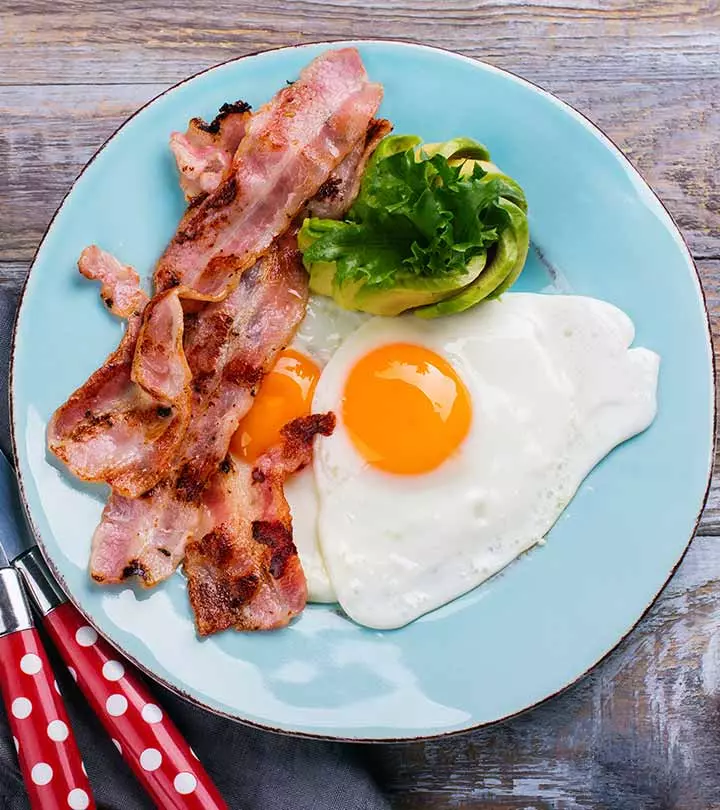
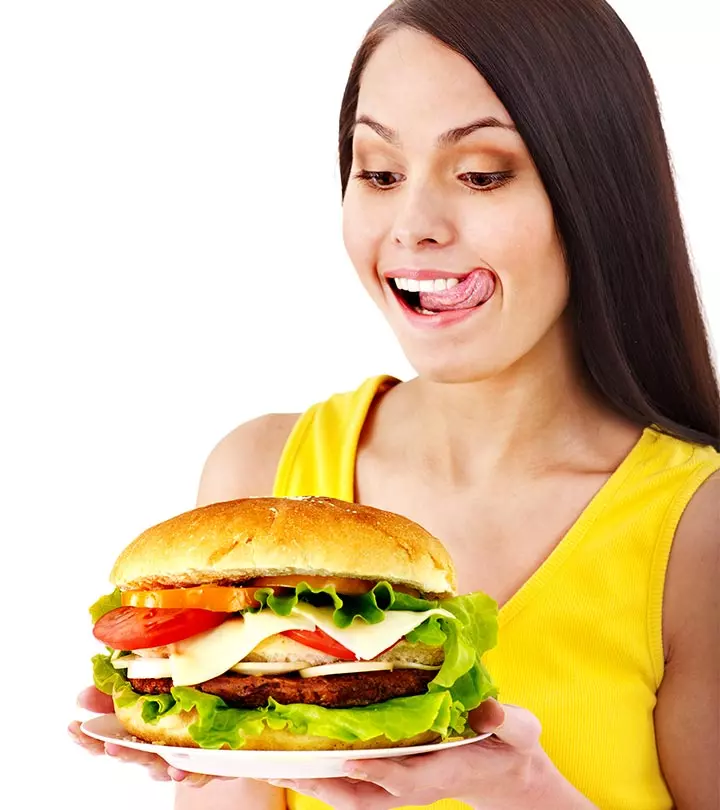

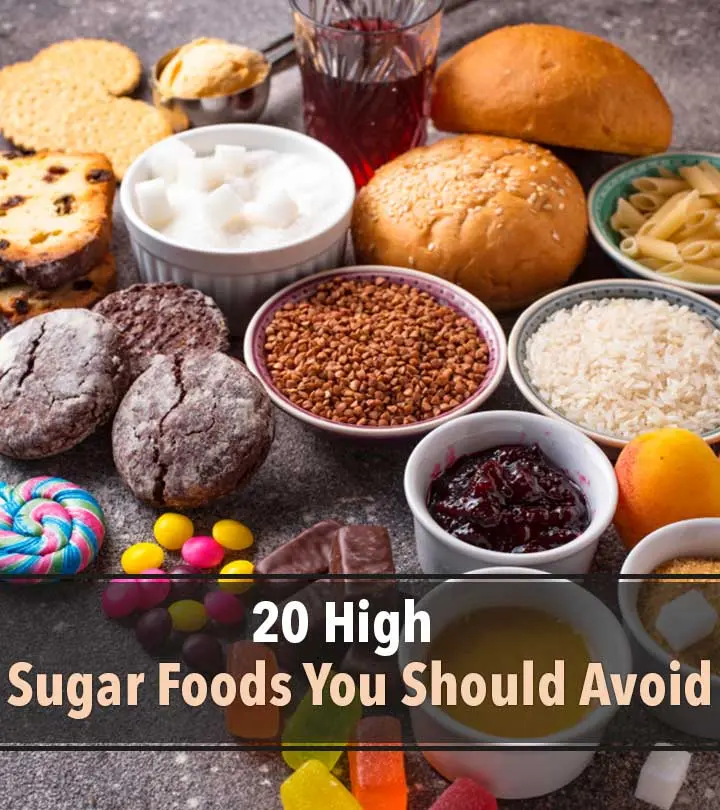
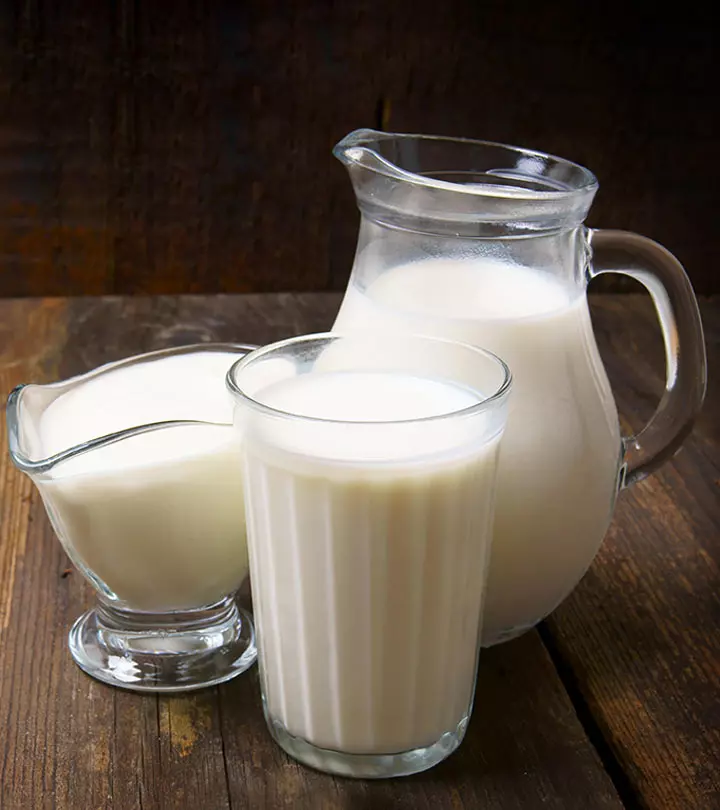



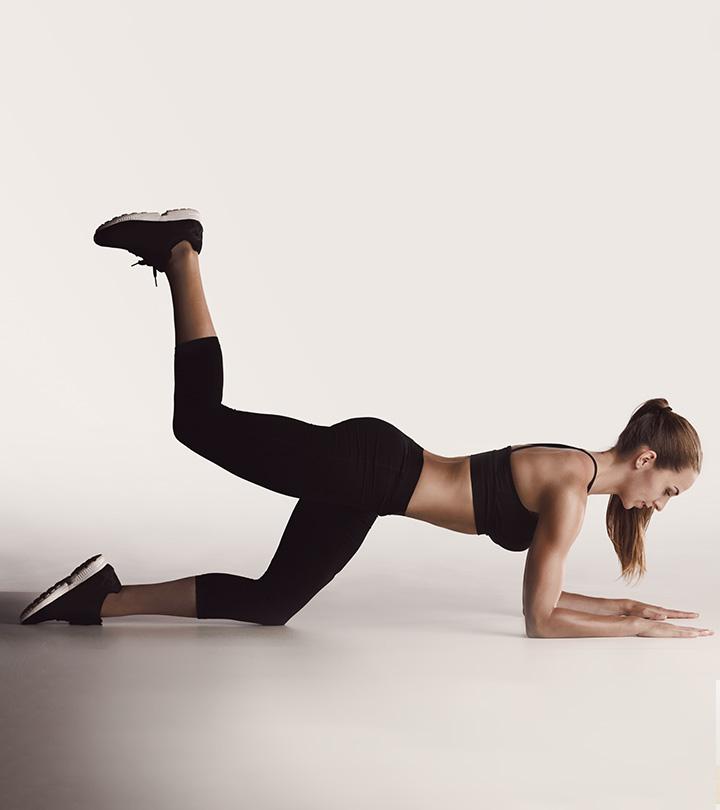

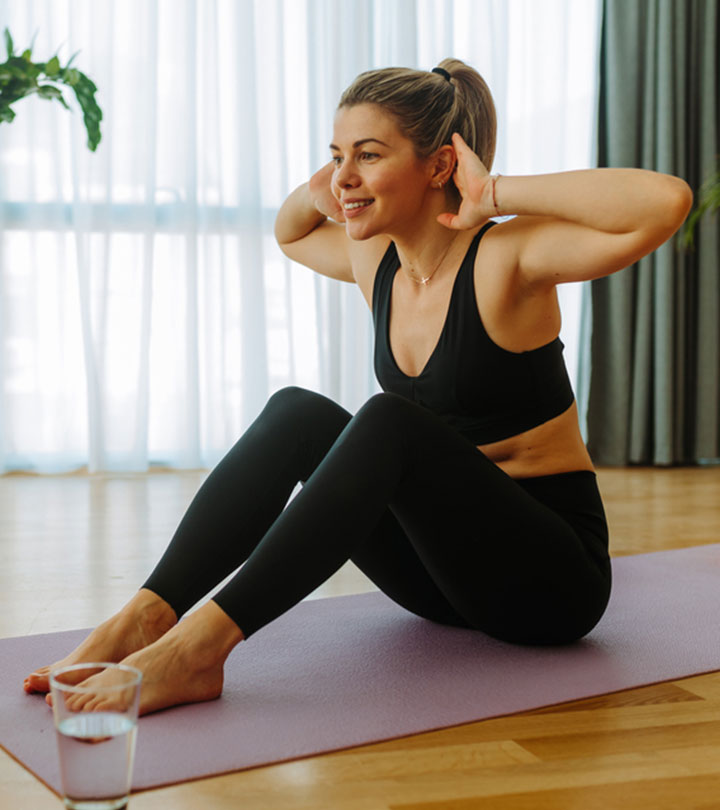

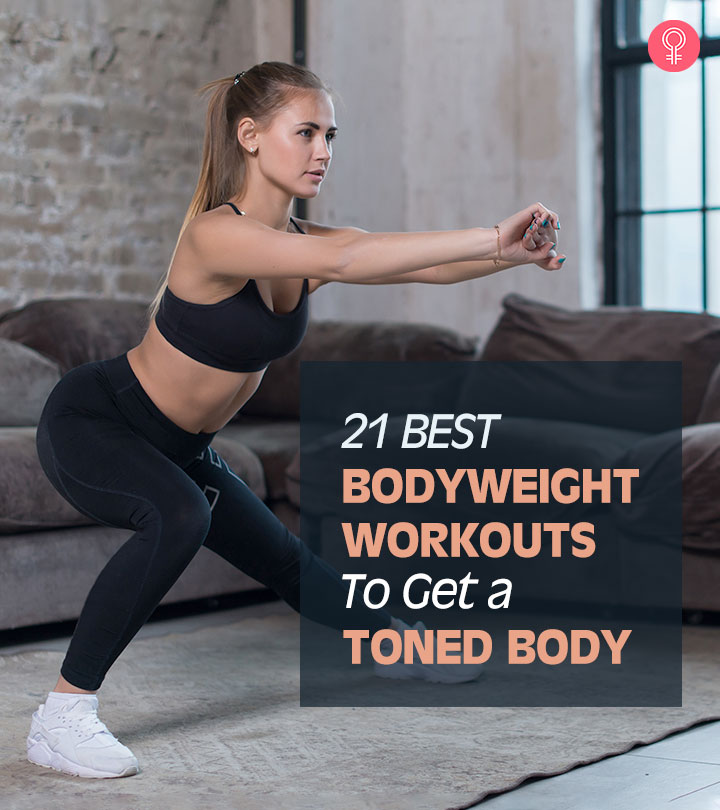
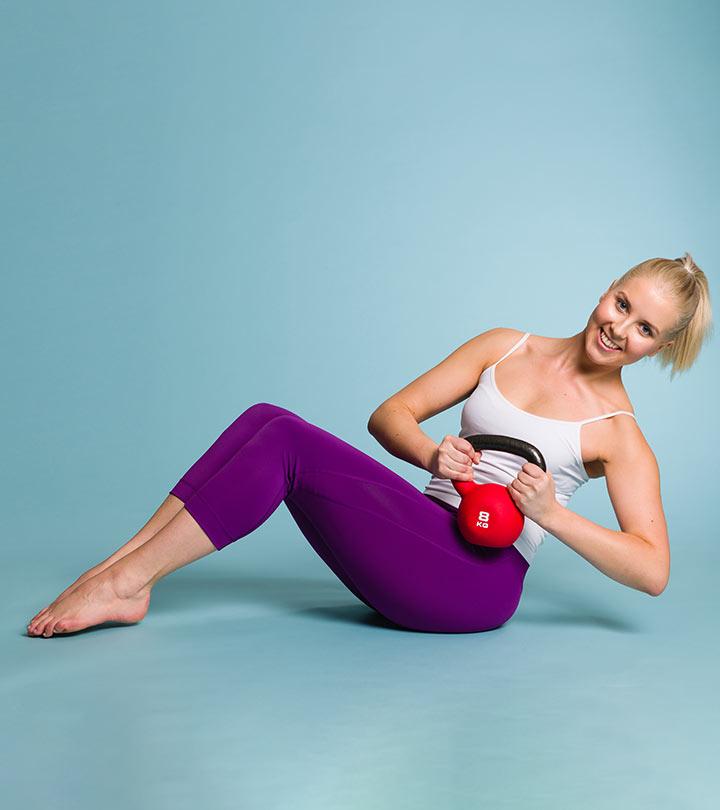

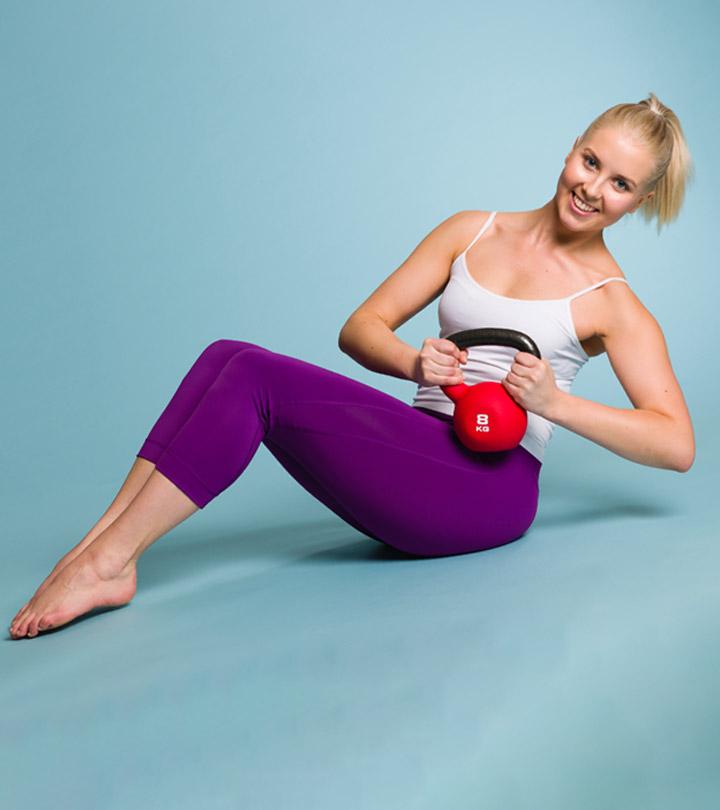
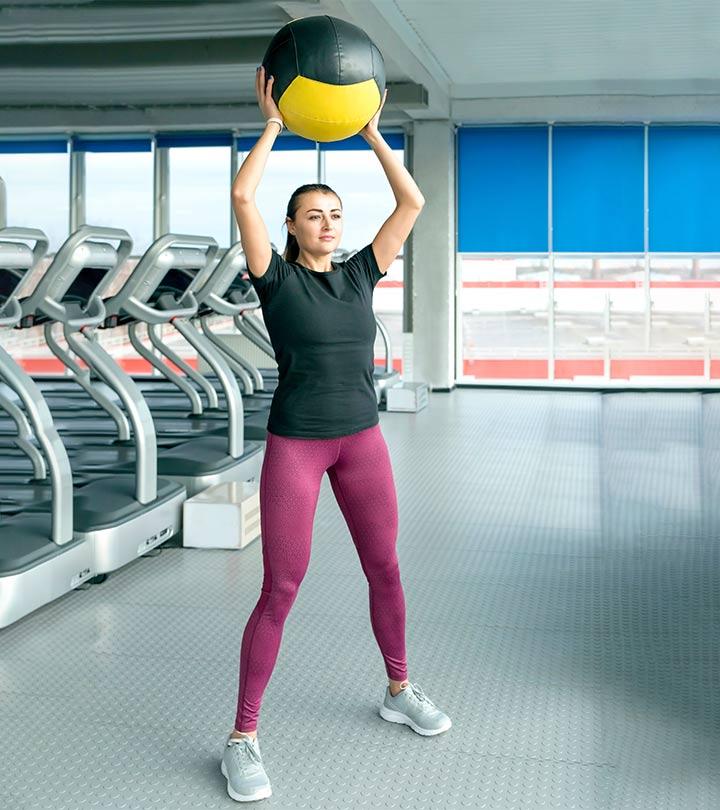
Community Experiences
Join the conversation and become a part of our empowering community! Share your stories, experiences, and insights to connect with other beauty, lifestyle, and health enthusiasts.